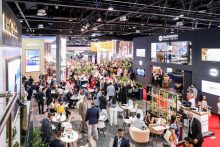 Personalisation is emerging as a growing trend in travel and tourism, particularly within the luxury segment, as travellers increasingly seek experiences tailored to their individual preferences and lifestyles. According to the ATM Travel Trends Report 2025, developed by ATM in partnership with Tourism Economics, 85% of hoteliers now consider personalisation as a key driver of commercial value, with tailored experiences shown to generate additional revenue of up to 5%. Furthermore, insights by market intelligence firm Future Market Insight Inc, has revealed the global customisation and personalisation in travel market is expected to reach US$620.71 million by 2032.
Personalisation is emerging as a growing trend in travel and tourism, particularly within the luxury segment, as travellers increasingly seek experiences tailored to their individual preferences and lifestyles. According to the ATM Travel Trends Report 2025, developed by ATM in partnership with Tourism Economics, 85% of hoteliers now consider personalisation as a key driver of commercial value, with tailored experiences shown to generate additional revenue of up to 5%. Furthermore, insights by market intelligence firm Future Market Insight Inc, has revealed the global customisation and personalisation in travel market is expected to reach US$620.71 million by 2032.
Senior executives from leading hotel groups, including Minor Hotels, Fairmont and Marriott, examined the rising influence of ‘hyper-personalisation’, which moves away from one-size-fits-all services to offering bespoke guest experiences. Leveraging tools such as AI-driven customisation and chatbots, as well as personalised welcome amenities and bespoke dining options, these brands are redefining the customer journey in the luxury travel segment, which is witnessing a continued surge worldwide at the Arabian Travel Market 2025.
Speaking during the panel, experts defined hyper-personalisation as providing individualised experiences that anticipate both expressed and unspoken guest needs. While technology and Artificial Intelligence (AI) are instrumental in delivering customised offerings at scale, the panellists agreed that human connection remains essential for a truly personalised hospitality experience.
Nicolas Hauvespre, VP of luxury brands at MEA Marriott, said: “When it comes to hyper-personalisation, for many brands, this goes far beyond traditional service. It’s about creating something highly tailored and curated through leveraging technology and building on your culture, so you can develop that anticipatory service and meet both the explicit and unspoken needs of your guests.”
The panel, which also included Loay Nour, Vice President Fairmont Brand and Marketing Communications, and Amir Golbarg, Senior Vice President Minor Hotels, also discussed the importance of establishing an emotional connection, anticipating guest needs, and building this over time.
“Luxury is not one size fits all, it’s no longer about recognising someone by the name or knowing their preferences in their profile, because you need to understand that those consumers are not only hotel consumers, they are exposed into the ultra level of personalisation from other brands and other industries that they work with, so they have a certain minimum of expectations,” said Nour.
In the Middle East and Africa, Marriott is embracing this shift while maintaining brand distinctiveness, expanding its luxury footprint with projects such as the Ritz-Carlton Reserve at Nujuma in Saudi Arabia’s Red Sea, which is rooted in immersive, cultural experiences. Upcoming openings elsewhere in the region include a portfolio of curated Ritz-Carlton safari lodges in eastern Africa, which will pioneer new destinations and provide guests with highly authentic experiences.
Meanwhile, owner-led hospitality companies, such as Minor Hotels, are using their lean structures to pilot new concepts in-house before rolling them out globally. This operational flexibility has enabled the company to invest in curated, experience-driven offerings that prioritise quality over quantity. A recent success story includes the 22-room Anantara Santorini Abu Dhabi in Ghantoot, which has outperformed expectations by focusing on hyper-personalised offerings in a unique setting.
Commenting on these insights, Danielle Curtis, Exhibition Director ME, Arabian Travel Market, said: “As luxury travel evolves, so too does the definition of what it means to deliver highly personalised experiences. Today’s travellers are looking for more than exceptional service; they expect tailored journeys that reflect who they are and what they value. At ATM, we are witnessing how hospitality brands are rising to the challenge, providing guests with luxury experiences that are personalised, sustainable and connected to people and place.”
 Tourism Breaking News
Tourism Breaking News


